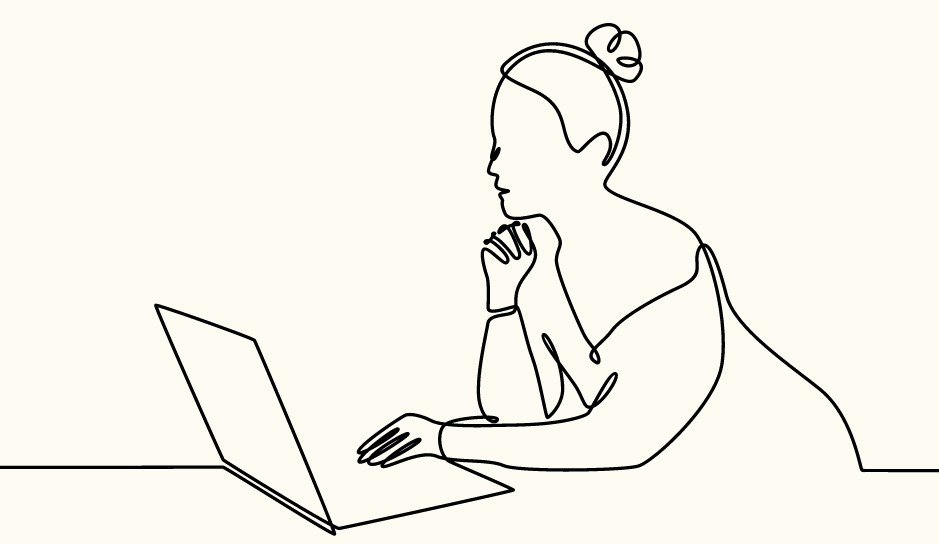Writing to decode your feelings
My first manuscript and journaling—these are two powerful ways I learned to get over the hard stuff.
“I write because I don't know what I think until I read what I say.”—Flannery O’Connor
I listened to a podcast the other day about an author who wrote over 30 books. (I wish I could remember which podcast it was, but I deleted it after listening. 😒)
The conversation was about the author’s ability to write so many books because writing comes so naturally to her. It’s the tool she turns to when she feels disruption in her life, in moments of joy, and everything in between. She writes to make sense of her thoughts and turn them into meaning or purpose.
The first manuscript I wrote
I thought about the first manuscript I wrote and realized I did what this author did. I wrote about my failed marriage, all of the places I traveled to (as a means of escaping my problems—spoiler, it didn’t work), and about my brother going to prison.
It made my heart spill open all over again. There were days when all I could write was a measly paragraph or nothing at all.
But I somehow kept going and tried to make sense of all of it—because that’s what you do when you’re writing a memoir. I kept thinking about the reader who would someday pick up my book. (Hopefully, it will be many readers.)
I had to search for the meaning in each scene, and I pushed myself to think and reflect beyond what I thought it meant. (Thank you, writing classes!)
Writing to uncover a better story
At first, I kept thinking about all the time and energy I had “wasted” on writing. But the new story that emerged felt a lot more thought-out and more introspective.
In writing about the parts of my life I hated thinking about and analyzing, I learned it wasn’t that scary because I confronted it through writing.
None of this really came together for me until I listened to that podcast.
Journaling to decode my feelings
I first started journaling six years ago, and even then, I didn’t notice any real benefits for at least a few years. The only reason why I kept journaling every single day was because I was so depressed.
I kept thinking my life was shit and I wasn’t worthy because I didn’t check the boxes of a successful marriage, kids, a career. I was lonely and ashamed. I wrote in my journal because I was too afraid and embarrassed to tell anyone how I was really feeling. I went through therapy, but it didn’t really help.
A few years into journaling daily, it struck me that when I write things down, I remember them. Like the time I dealt with an office bully. She’d cut me off during team meetings, questioning my opinions and strategy.
I wrote about it and over time, found comfort in writing down alternate stories about what happened. Maybe the bully was rude to me in the meeting because she was having a shitty day. Maybe she felt threatened by me. Maybe she needs to be the smartest person in the room and it has nothing to do with me. After jotting it down, I learned to let it go because I hated wasting time and energy thinking about it.
I started to notice journaling made me more observant, and more mindful of my thoughts and reactions. But for some reason, I siloed the art of journaling and writing a manuscript. Now, I see the benefits that come from both, and that writing down your thoughts and feelings (no matter if it’s just for you or for an audience) is cathartic.
Writing has taught me to be nicer to myself
My first manuscript forced me to return to painful memories. I realized I was so hard on myself back then. So I learned to be nicer to myself today.
I use writing as a way to think about how I feel about myself and others. I ask myself a lot of questions, “Did it really happen like that? What else am I missing? Why am I thinking or reacting this way?”
I write and I think, and if I can create meaning around that particular situation, I take it with me as a lesson. If I can’t, well, at least I can be more mindful about it the next time.
For me, writing is the best and cheapest form of therapy, but it was definitely an evolution to get to this point.
How about you? Do you use writing to decode your feelings?
More stories…
Building self-esteem, a writing mindset, and the cost: What's it like to work with a book coach?
Alyssa Jarrett and I met at a tech conference many years ago in San Francisco. She and I have very similar professional backgrounds in marketing and content within the tech space. We had an incredibly insightful podcast conversation about her experience with a book coach. (T…
Neglecting my book is actually making me want to write
In a previous Substack newsletter, I wrote about giving myself some grace when I feel like giving up on writing my memoir. I was just feeling kind of blah. I knew that forcing myself to keep writing when I wasn’t feeling it would make me resentful and stressed out.
Writer’s eye: My brother came into focus
Since starting my memoir and my writing classes, I write and write and write. All this writing did something to my brain. I suddenly started seeing the world as little stories I could write about. It’s like everything, even the mundane, suddenly became fodder for an op-ed.








I see writing to the way Dumbledore uses the Pensieve in Harry Potter—it's a way to dump them out as it's happening in the moment, for analysis later at a distance instead of getting caught up in the emotional spiral. Can't wait to read more of your story when you're ready to share!
Writing has been a lot of things but the most consistent role it has played is as some sort of human decoder for me. I am just pulling this all together in my mind the last few weeks, but if someone writes about their life or even texts me frequently, this is how I understand them the very best. Without the writing aspect, it is very hard for me to form connection with them. Could be an autism thing (people on paper are silent while also saying a lot!) but I haven’t seen it mentioned somewhere else. Cheering you on. 🧡